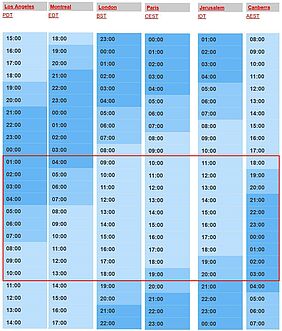Conférence internationale « Fallacies in the Arabic, Byzantine, Hebrew and Latin Traditions »
ConférenceConférence internationale
« Fallacies in the Arabic, Byzantine, Hebrew and Latin Traditions »
(Lille, May the 24th, 25th, 26th)
Organisateurs : Shahid Rahman & Leone Gazziero
Argumentaire :
Bad arguments have never been in short supply. The scholarly interest they have elicited in recent years, on the other hand, is quite exceptional. Fallacy studies have become a well-established and flourishing field of argumentation theory (“critical thinking” being one of the umbrella labels under which the subject is often advertised). With so few exceptions as to make no difference, however, the ever-growing number of essays, book-chapters, book-length studies, journals’ special issues and even handbooks on the subject – which are easily counted by the hundreds – suffer from a symptomatic lack of interest in Mediaeval Logic which is – arguably – the most creative stage in the whole history of fallacy theories. The standard story is that after Aristotle got it off to a great start, the discipline became dormant until Richard Whately first and John Stuart Mill soon afterwards revived it in spectacular fashion.
Fallacies in the Arabic, Byzantine, Hebrew and Latin Traditions will show that this picture is misleading and will replace it with a new narrative which will bring to bear the full resources of mediaeval theory of argumentation across disciplines and across cultures to redefine the way we describe, classify, and – hopefully – avoid fallacies in the light of mediaeval logical, philosophical, theological and legal achievements.
PROGRAMME :
Monday, May the 24th__________________________________________________________
« A Beginner’s Guide to Fallacies: al-Katibi’s treatment in the Shamsiyyah » 11:00 - 12:20 (Paris) : Sten Ebbesen (University of Copenhagen)
« Are Fallacies Topoi ? » --Pause--
15:00 - 16:20 (Paris) : Roberta Padlina (Universität Basel)
« AskSten : A Semantic-Web-based Knowledge System » 16:30 - 17:50 (Paris) : Shahid Rahman (Université de Lille) & Walter Young (McGill University)
« Outside the Logic of Necessity. Deontic Puzzles and “Breaking” Compound Causes in Islamic Legal Theory and Dialectic » 18:00 - 19:20 (Paris) : Joseph David (Yale University)
« Rabbinic Typology of Fallacies »
Tuesday, May the 25th__________________________________________________________
« Fallacies and Biblical Exegesis – The Case of Joseph Ibn Kaspi » 11:00 - 12:20 (Paris) : Aviram Ravitsky (Ariel University)
« Fallacies in Rabbinical Thought, in Medieval Jewish Philosophy, and in the Treatise on Talmudic Methodology by Abraham Elijah Cohen --Pause--
15:00 - 16:20 (Paris) : Ana Maria Mora Marquez (Gothenburg University)
« The Sophistical Syllogism : Simon of Faversham and Radulphus Brito » 16:30 - 17:50 (Paris) : Riccardo Strobino (Tufts University)
« Reductio ad impossibile, monotonicity and the fallacy of false cause in Avicenna » 18:00 - 19:20 (Paris) : Hassan Rezakhany (University of California, Berkeley)
« A Forgotten Mereological Paradox »
Wednesday, May the 26th_______________________________________________________
« al-Ṭusī and al-Samarqandī on the Liar Paradox » 11:00 - 12:20 (Paris) : Yehuda Halper (Bar-Ilan University)
« Are Zeno’s Paradoxes of Motion Fallacies? Evidence from the Hebrew Aristotelian Logical Tradition » --Pause--
15:00 - 16:20 (Paris) : Irene Caiazzo (CNRS)
« Théologie et raisonnements fallacieux aux confins des XIIème-XIIIème siècles » 16:30 - 17:50 (Paris) : Walter Young (McGill University)
« Distilling New-Old Fallacy Types from Medieval Islamic Juristic Dialectic: From Objection & Response to Fallacy & Solution » 18:00 - 19:20 (Paris) : Asad Ahmed (University of California, Berkeley)
« The Structure of Fallacies in the Sullam al-'ulum of Muhibballah al-Bihari (d. 1707)
Toute personne intéressée est la bienvenue. Prière de contacter les organisateurs pour avoir les modalités de connexion : Shahid Rahman & Leone Gazziero
Décalage horaire (voir fichier ci-contre)

